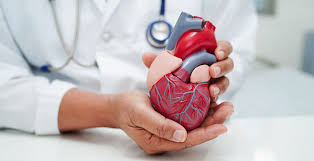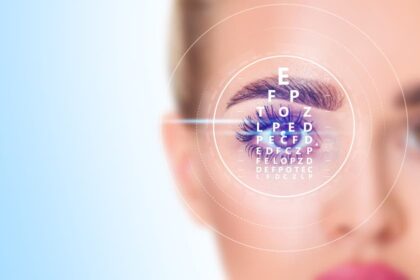Heart disease is one of the leading causes of death worldwide. It affects both men and women and can occur at any age if lifestyle factors are ignored. Understanding its causes, recognizing symptoms early, and knowing about available treatments can prevent life-threatening complications.
This article provides a comprehensive overview of heart disease and how you can manage or prevent it effectively.
What Is Heart Disease?
Heart disease (also known as cardiovascular disease) is a general term used for conditions that affect the heart and blood vessels. The most common type is coronary artery disease (CAD), which can lead to heart attacks.
Common Types of Heart Disease
1. Coronary Artery Disease (CAD)
Occurs when arteries that supply blood to the heart muscle become narrow or blocked due to plaque buildup.
2. Arrhythmias
Irregular heartbeats caused by electrical signal issues in the heart. Can lead to dizziness, fainting, or cardiac arrest.
3. Heart Failure
A condition where the heart is unable to pump blood efficiently, leading to fatigue, shortness of breath, and swelling.
4. Heart Valve Disease
When one or more heart valves do not open or close properly, causing blood flow problems.
5. Congenital Heart Disease
Structural problems in the heart present from birth.
Causes and Risk Factors of Heart Disease
Major Causes
- Atherosclerosis (plaque buildup in arteries)
- High blood pressure (hypertension)
- High cholesterol levels
- Diabetes or insulin resistance
- Obesity and lack of exercise
Other Risk Factors
- Smoking
- Family history of heart disease
- Poor diet (high in salt, sugar, trans fats)
- Chronic stress
- Excessive alcohol consumption
Note: Many causes are lifestyle-related and can be controlled with early intervention.
Symptoms of Heart Disease
Symptoms vary depending on the type of heart disease, but common signs include:
| Symptom | May Indicate |
|---|---|
| Chest pain or discomfort | Coronary artery disease |
| Shortness of breath | Heart failure |
| Irregular heartbeat | Arrhythmia |
| Swelling in legs/ankles | Heart failure |
| Dizziness or fainting | Arrhythmia or valve issue |
| Fatigue or weakness | Heart failure or valve issue |
Women may experience different symptoms like jaw pain, back pain, nausea, or fatigue without chest pain.
Diagnosis and Testing
Common Tests for Heart Disease
- Electrocardiogram (ECG/EKG): Detects irregular heartbeats
- Echocardiogram: Ultrasound of the heart’s structure and function
- Stress test: Measures heart performance under physical stress
- Cardiac catheterization: Examines arteries using dye and X-rays
- Blood tests: Check for cholesterol, troponin, CRP levels
Treatments for Heart Disease
1. Lifestyle Changes
- Adopt a heart-healthy diet (low fat, high fiber)
- Exercise 30 minutes daily
- Quit smoking and limit alcohol
- Manage stress through yoga, breathing exercises, or therapy
2. Medications
Doctors may prescribe:
- Statins to lower cholesterol
- Beta-blockers to reduce heart rate and blood pressure
- ACE inhibitors to help blood flow
- Blood thinners to prevent clots
3. Medical Procedures
- Angioplasty: Opens narrowed arteries
- Stent placement: Keeps arteries open
- Bypass surgery: Redirects blood flow around blocked arteries
- Pacemaker or defibrillator: Manages arrhythmias
Preventing Heart Disease
| Preventive Measure | Benefit |
|---|---|
| Regular physical activity | Lowers blood pressure and strengthens heart |
| Balanced diet (DASH/Mediterranean) | Reduces cholesterol and inflammation |
| Regular health screenings | Catches risks early |
| Controlling diabetes | Reduces blood vessel damage |
| Healthy weight management | Lowers overall risk |
Living With Heart Disease
- Take medications as prescribed
- Attend follow-up appointments regularly
- Monitor blood pressure and heart rate at home
- Inform doctors about any new symptoms
- Stay mentally positive with family support and cardiac rehab programs
Conclusion
Heart disease may be serious, but it is largely preventable and manageable if detected early. By understanding the causes, staying alert to symptoms, and following a healthy lifestyle, you can protect your heart and enjoy a longer, healthier life. Your heart is the engine of your body — take care of it before it breaks down.
Frequently Asked Questions (FAQs)
1. What is the main cause of heart disease?
The most common cause is atherosclerosis, or plaque buildup in arteries due to high cholesterol, smoking, and poor diet.
2. Can heart disease be cured completely?
Heart disease is often managed, not cured. With medication, lifestyle changes, and in some cases surgery, people can live long healthy lives.
3. What is the difference between heart attack and cardiac arrest?
A heart attack is blocked blood flow to the heart. Cardiac arrest is when the heart suddenly stops beating. Both are emergencies but require different treatments.
4. Are women at risk for heart disease?
Yes, heart disease is the leading cause of death in women. Symptoms can differ from men’s and are often misdiagnosed.
5. Can stress cause heart disease?
Chronic stress raises blood pressure and affects heart rhythms, increasing heart disease risk.
6. How often should I get my heart checked?
Adults should get a cardiac risk assessment every 1–2 years, especially if you have family history or high-risk factors.
7. Is chest pain always a sign of heart disease?
Not always, but persistent or severe chest pain should be checked immediately, as it may signal a heart issue.
8. What foods help improve heart health?
- Oats, salmon, walnuts, berries, leafy greens, olive oil, flaxseeds, and legumes
- Avoid fried foods, red meat, and trans fats









